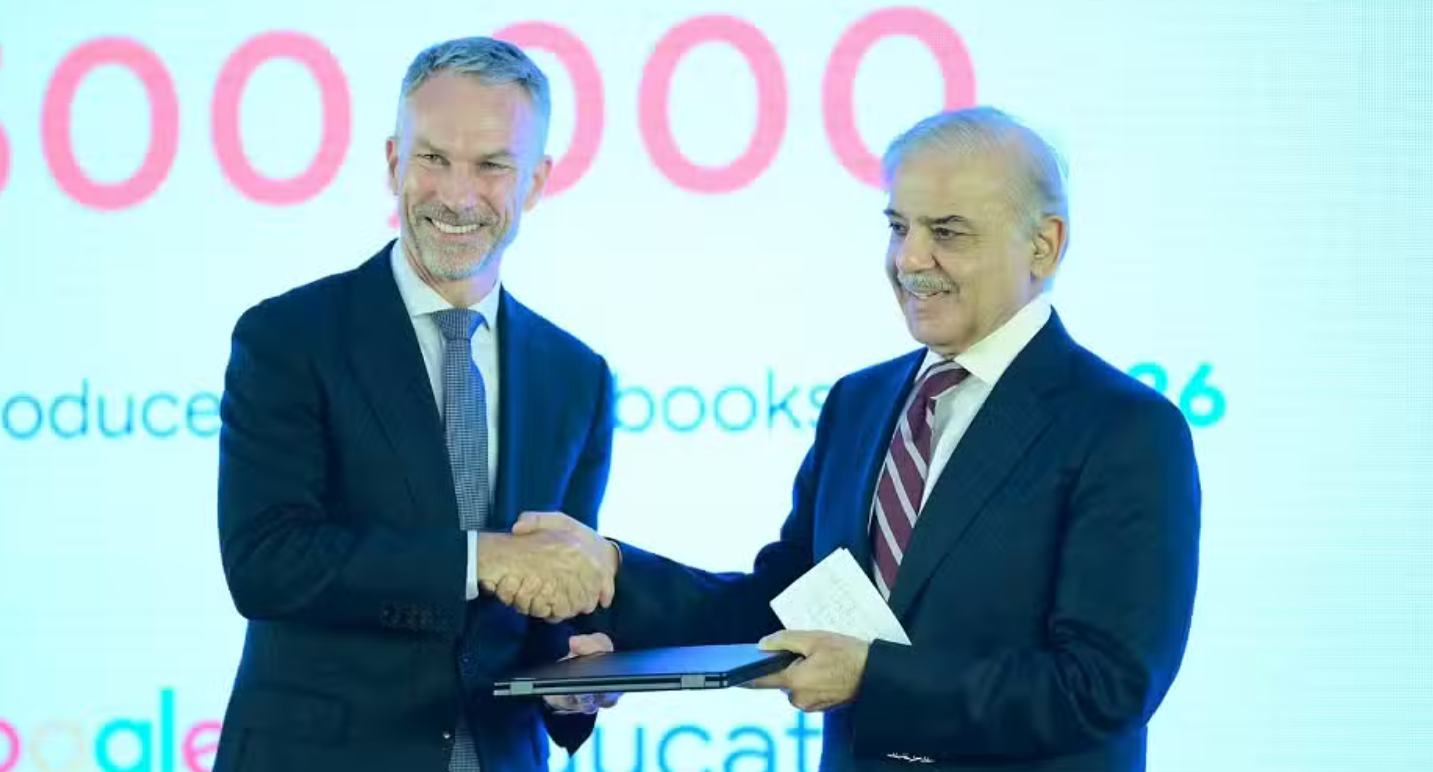In a significant move to boost local technology production, global tech giant Google has launched an initiative to produce 500,000 Chromebooks in Pakistan. The launch was marked by a ceremony in Islamabad, where the first locally manufactured device was presented to Prime Minister Shehbaz Sharif by Scott Beaumont, President of Google Asia Pacific (APAC).
Narrowing the digital skills gap through digital skills training and greater adoption of education technologies can add Rs 2.8 trillion to Pakistan’s GDP by 2030, says Google.
Google hosted Agay Barho: A Google for Pakistan Event in Islamabad, sharing updates on its continued commitment to unlocking future opportunities for Pakistan’s digital economy. A new research findings show that investing in digital skills and boosting digital exports can play a significant role in future-proofing Pakistan’s digital economy.
At the event, Access Partnership unveiled a new report titled “Agay Barho: Empowering Pakistan’s Digital Economy,” which shows that despite facing economic challenges, Pakistan’s information technology (IT) industry is emerging as the engine of economic recovery and growth. Pakistan’s IT services exports have grown by 2.7x since 2014, reaching 35 percent of all service-sector exports in 2023.
During the ceremony, Prime Minister Sharif expressed his appreciation for Google’s contributions both globally and within Pakistan. He emphasized the potential of the country’s youth in the field of information technology, highlighting their capacity to drive economic development. The prime minister urged both federal and provincial governments to utilize all available resources to ensure the education and empowerment of young people.
Prime Minister Sharif also announced the government’s ambitious target of achieving $25 billion in IT exports over the next five years. He called on IT experts and entrepreneurs to develop a plan to help reach this goal, while also promoting Small and Medium Enterprises (SMEs) and freelancers.
Additionally, he reiterated his commitment to making the country’s governance system entirely paperless to combat corruption.
Minister of State for Information Technology and Telecommunication, Shaza Fatima Khawaja, acknowledged Google’s significant role in the digitization of Pakistan. Farhan S. Qureshi, Google’s Regional Director for Pakistan, Bangladesh, and Sri Lanka, noted that focusing on technology would enhance economic activities in the country.
He also pointed out the vast opportunities available for freelancers in Pakistan to advance in various technological fields.










